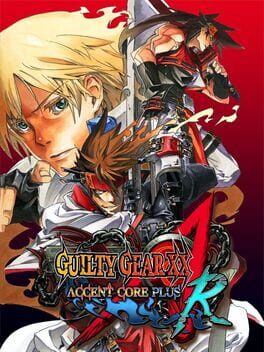Fighting game fans have a very limited selection of options and I theorize that many players who invest heavily into their games of choice end up with somewhat of a "player's remorse", in which the time invested in the game doing the unfun portions (labbing, practicing combos and setplay, etc.) creates a cognitive dissonance when the experience of playing the game and having a stronger understanding of it causes the flaws to move to the forefront. Do they admit the game isn't as flawlessly designed as they once thought and accept they feel like they wasted their time trying to get good? Or do they double down and say "because I play this game, it is the best one."? I think many gear fans pick the latter and I don't blame them because much of the contradictory design philosophy is disguised as exactly what these players were drawn to in the first place.
Gear as a series is heavily focused on offense. The entire cast has offensive options that in many other more traditional (aka non-anime) fighting games would break them wide open. To remedy this, gear opts for mechanics like burst, FD, IB and so on to make it so that the incredibly strong offensive options have, what in their design team's mind, is "equally" strong defensive options. I could pick apart why I dislike practically all of gear's defensive mechanics because I think almost all of them could be designed better, but instead let's just take a core principle of game design into account. Offense wins the game. Offense is inherently stronger than defense because you cannot win without AT SOME POINT selecting an offensive option. In this sense, balance of any fighting game is always going to be skewed towards offensive play because that is what determines who wins.
This review could really be for any entry in gear's series because they all suffer from this contradiction. The overtuning of offense creates a game in which you feel out neutral, someone wins and the defender plays RPS until they guess right or react accordingly and then becomes the attacker and does the same to their opponent. When "balance" is discussed in fighting games, rarely is it a discussion of "how strong are offensive options vs defensive?" It's a matter of "how many characters are viable in the metagame?" and this is a shame to me as the former is often more important to the longevity of a game's competitive integrity. Shallow gameplay that skews too far towards offense or defense results in the things fighting game fans hate the most: timer scams, 50/50 to death, no emphasis on neutral, touch of deaths, etc, etc. These games can still be fun and even to some people's taste, but they don't make for deep compelling competition. Skewing that kind of balance centralizes games to a degree that, to me, makes them very boring.
I played gear for a good long time. I came to understand it well enough. I can safely say it isn't for me. I'll still find some of the characters fun, I'll still be able to enjoy this game for what is good about it, but it will never hold a place in my mind as a game that is thoughtfully designed or competitively interesting.
Gear as a series is heavily focused on offense. The entire cast has offensive options that in many other more traditional (aka non-anime) fighting games would break them wide open. To remedy this, gear opts for mechanics like burst, FD, IB and so on to make it so that the incredibly strong offensive options have, what in their design team's mind, is "equally" strong defensive options. I could pick apart why I dislike practically all of gear's defensive mechanics because I think almost all of them could be designed better, but instead let's just take a core principle of game design into account. Offense wins the game. Offense is inherently stronger than defense because you cannot win without AT SOME POINT selecting an offensive option. In this sense, balance of any fighting game is always going to be skewed towards offensive play because that is what determines who wins.
This review could really be for any entry in gear's series because they all suffer from this contradiction. The overtuning of offense creates a game in which you feel out neutral, someone wins and the defender plays RPS until they guess right or react accordingly and then becomes the attacker and does the same to their opponent. When "balance" is discussed in fighting games, rarely is it a discussion of "how strong are offensive options vs defensive?" It's a matter of "how many characters are viable in the metagame?" and this is a shame to me as the former is often more important to the longevity of a game's competitive integrity. Shallow gameplay that skews too far towards offense or defense results in the things fighting game fans hate the most: timer scams, 50/50 to death, no emphasis on neutral, touch of deaths, etc, etc. These games can still be fun and even to some people's taste, but they don't make for deep compelling competition. Skewing that kind of balance centralizes games to a degree that, to me, makes them very boring.
I played gear for a good long time. I came to understand it well enough. I can safely say it isn't for me. I'll still find some of the characters fun, I'll still be able to enjoy this game for what is good about it, but it will never hold a place in my mind as a game that is thoughtfully designed or competitively interesting.

Local_Winner
9 months ago